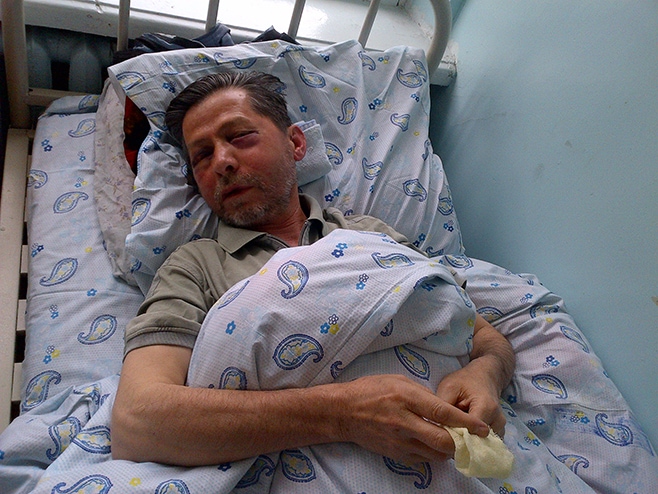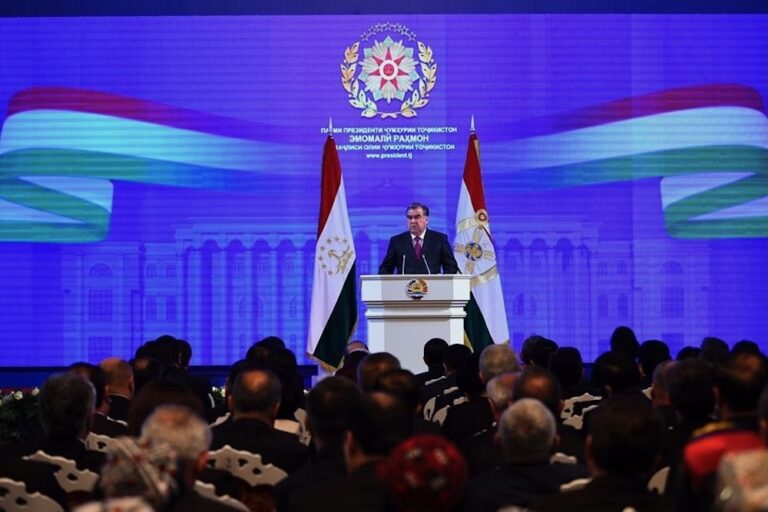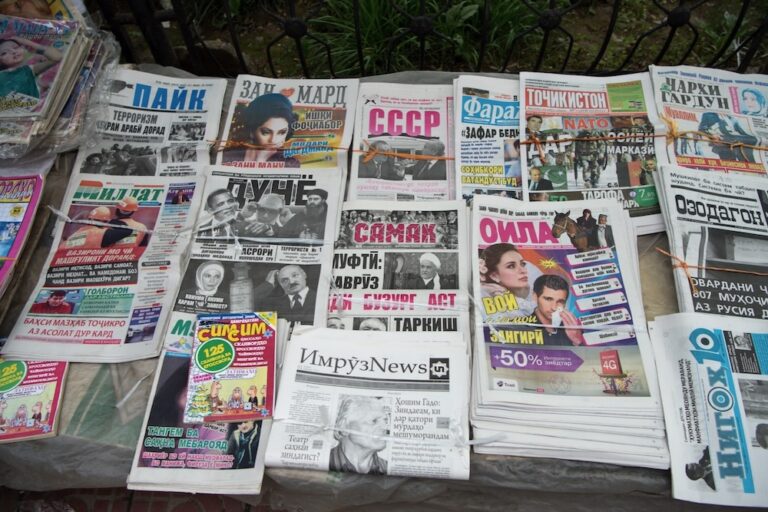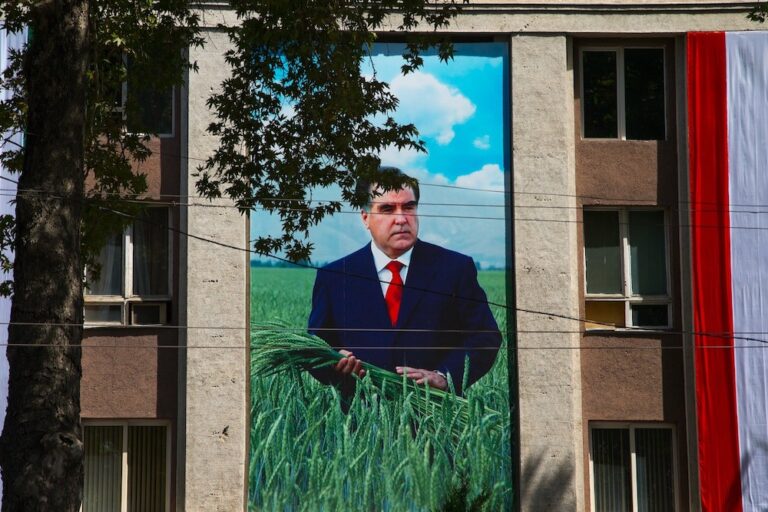The Tajik government should end its harassment of the political opposition ahead of its presidential elections on 6 November 2013.
The Tajik government should end its harassment of the political opposition, and create conditions for free, competitive elections, Human Rights Watch said today. Tajikistan will hold presidential elections on November 6, 2013.
The government has taken steps to restrict competition and debate. The only genuine opposition candidate, Oinihol Bobonazarova, dropped out of the race on October 11, citing pressure by the authorities.
“Rather than ensuring that voters will be able to hear from all sides, the Tajik government is targeting opposition figures,” said Hugh Williamson, Europe and Central Asia director at Human Rights Watch.
“Prosecuting, beating, and holding opposition leaders incommunicado are an affront to the idea of fair elections. And for an election to be free and fair, voters need to have a genuine choice.”
As of October 21, six presidential candidates had officially registered, including President Emomali Rahmon, but all candidates support the Rahmon government. Rahmon, who has been in power since the country gained independence in 1991, is seeking a fourth term.
Over the last year, Tajik authorities have widened a crackdown on the political opposition and activists, imprisoning or intimidating several opposition party leaders and stepping up efforts to extradite political opponents from abroad. The government has also restricted media freedom, with state media relentlessly providing a positive view of Rahmon and virtually no coverage of opposition candidates or other critical views. There are no independent television stations in Tajikistan. The Tajik government’s actions undermine freedom of association and expression and call into question its commitment to ensure free and fair elections, Human Rights Watch said.
Bobonazarova, a well-known human rights activist, was jointly nominated in September by Tajikistan’s two opposition parties, the Social Democratic Party and the Islamic Renaissance Party of Tajikistan (IRPT), as their presidential candidate.
Bobonazarova told Human Rights Watch that authorities had interfered with her campaign, intimidating, and in some cases detaining, her campaign workers in various regions of the country. Authorities also threatened people who had signed petitions in favor of her candidacy that they would have unspecified “problems” and pressured at least three of her close relatives, threatening them with the loss of their jobs or prosecution. Bobonazarova told Human Rights Watch that no state-run media – not radio, television, or newspapers – have covered her campaign.
In April Zaid Saidov, a businessman and former industry minister, announced the creation of a new opposition party, New Tajikistan. On May 19, as Saidov returned from a trip abroad, authorities arrested him at the Dushanbe airport.
He is being prosecuted on charges of embezzlement, corruption, polygamy, and rape, which his supporters allege are politically motivated. His trial, which is underway, is closed to the public. He has been detained since his arrest in a security services detention facility.
Prior to Saidov’s arrest, New Tajikistan party members announced at a news conference that he had received death threats by text message warning him to “stay away from politics.” Authorities have sealed the offices of the New Tajikistan party and dispersed rallies of Saidov’s supporters outside the detention center. Activists and New Tajikistan members have told Human Rights Watch they believe that Saidov was targeted for his opposition activity.
Throughout the year authorities have pressured the Islamic Renaissance Party of Tajikistan (IPRT), a leading opposition party and the only registered Islamic party in Central Asia. In April Mahmadali Hayit, deputy leader of the party, was attacked outside his home in Dushanbe by unidentified assailants days before the party had planned to hold its 40th anniversary convention.
Hayit told Human Rights Watch that before the attack he had been under surveillance and that people in civilian clothes who did not identify themselves had been regularly coming to his home to inquire about his whereabouts. Although authorities opened an investigation in April, no suspects in the attack have been identified.
In May Sherik Karamkhudoev, a party leader from the autonomous province of Gorno-Badakhshan, was sentenced to 14 years in prison for “participating in mass disorders” in a closed trial. Karamkhudoev was reported missing in April 2012 after government troops carried out a military operation in his home region and only resurfaced two weeks later in a security services detention center in Dushanbe. Karamkhudoev’s lawyers and family publicly alleged that he was subjected to torture in pretrial detention.
Authorities should conduct any criminal cases against opposition figures in a transparent manner, ensuring that defendants’ due process rights are upheld, and thoroughly and promptly investigate acts of violence against them, Human Rights Watch said.
The government has also aggressively sought the extradition from abroad of several high-profile political opponents who have criticized government policies or have openly said they were interested in running for president.
In February Abdumalik Abdullanjanov, a former prime minister and one-time presidential candidate who has been a refugee in the United States since 1994, was detained in Kiev, Ukraine on an Interpol arrest warrant. Tajikistan sought his extradition on charges ranging from embezzlement to involvement in a plot to assassinate Rahmon. Following intervention with the Ukrainian authorities by UNCHR, the United Nations refugee agency, and human rights groups, Abdullanjanov was released.
In December 2012 the United Arab Emirates authorities detained Umarali Kuvvatov, head of the opposition movement Group of 24, in the Dubai airport on a Tajik extradition request. Kuvvatov, a former businessman in Tajikistan, had openly criticized Rahmon’s policies and publicly alleged that the Rahmon family is involved in large-scale corruption. Kuvvatov was held in solitary confinement for much of the last 10 months in Dubai and finally pardoned by the UAE and released on September 24. He is now in hiding outside Tajikistan.
The wide-ranging crackdown has also targeted other government critics. In March Salimboy Shamsiddinov, a critical journalist and the head of the ethnic Uzbek minority society of Khatlon region, was reported missing after leaving his home in Qurghonteppa. Prior to going missing, Shamsiddinov had publicly called for ethnic Uzbeks in Tajikistan to support Rahmatillo Zoirov, the head of the Social Democratic Party, in the election.
Following news reports that he was missing, authorities declared that there was no “sign that … Shamsiddinov was beaten or kidnapped.”
In July officials claimed that a body resembling Shamsiddinov’s was found in a river in neighboring Uzbekistan, but Shamsiddinov’s family said they did not recognize the body from the picture they were shown.
Representatives of Tajikistan’s international partners, including Herman Van Rompuy, the European Council president, and Robert Blake, the US assistant secretary of state for South and Central Asia, have called on Rahmon to protect human rights in advance of, and during, the elections. During a visit to Brussels in April, Rahmon stated that he would assure that the November elections would take place in a “free, transparent, and democratic manner.”
The Tajik government should uphold its international obligations to protect freedom of expression, association, and assembly in advance of the election, Human Rights Watch said.
Tajikistan’s international partners should also publicly reiterate their condemnation of the mounting pressure on the political opposition and civil society, making clear that the strength of their bilateral relationships will depend significantly on the Tajik government’s willingness to uphold its core human rights obligations, Human Rights Watch said.
“Washington, Brussels, and other key partners should send Dushanbe a strong and clear message to protect core civil and political rights in the weeks leading up to Tajikistan’s presidential elections and in general,” Williamson said. “Let the Tajik government know that the world is watching.”
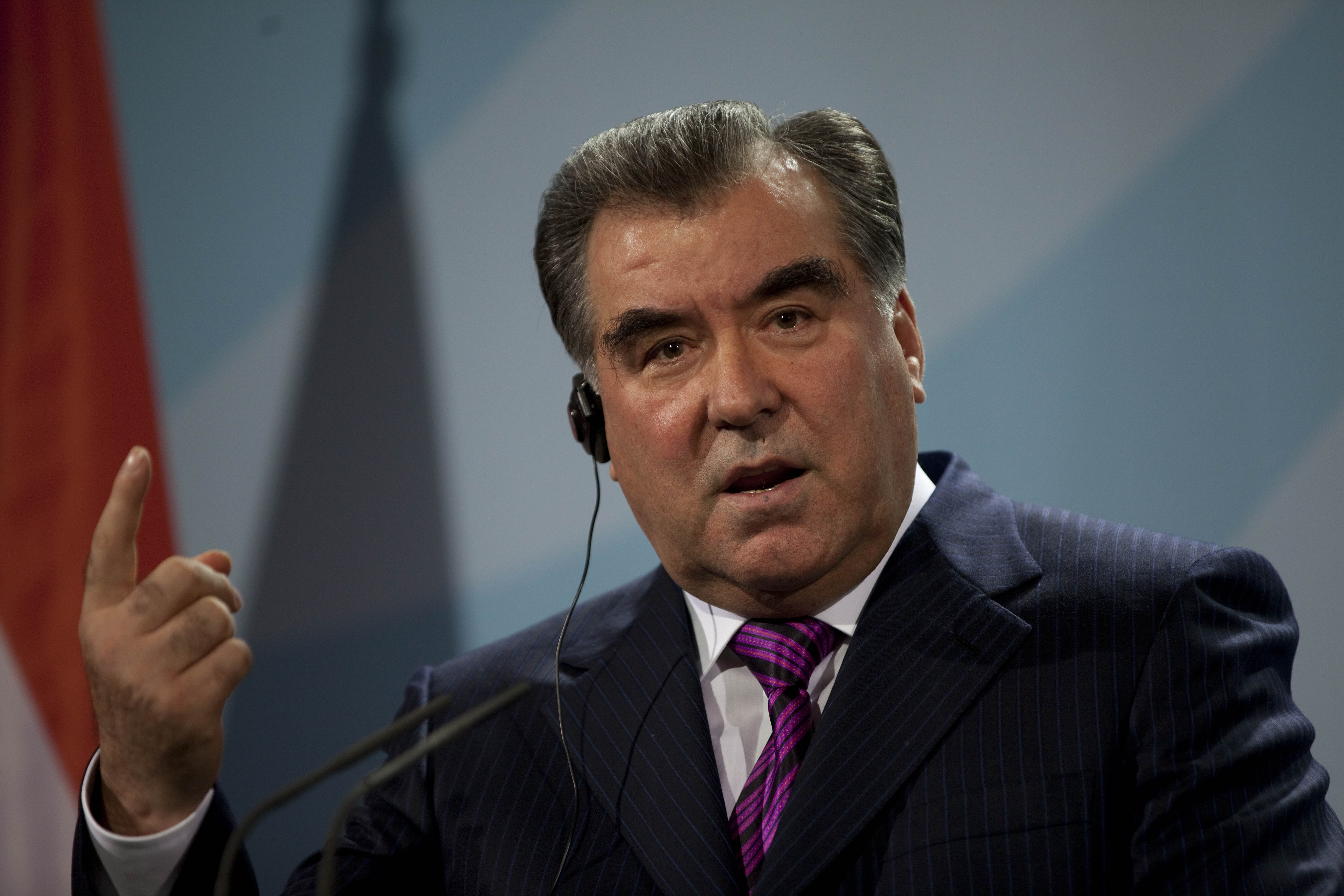
President Emomali Rahmon has been in power since 1991. He is currently running for his fourth term in office.AP Photo/Gero Breloer
